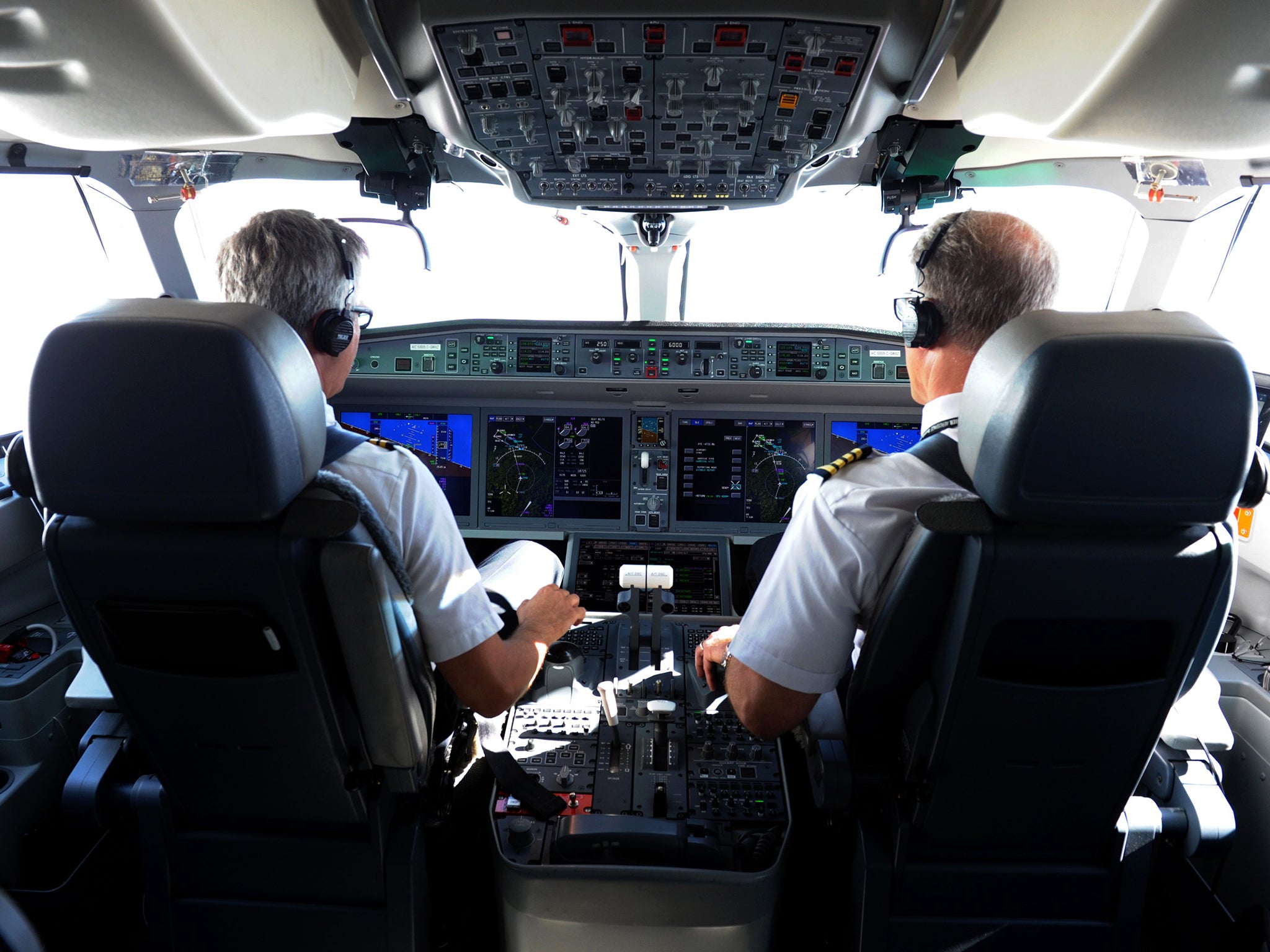Pilots' union warns airlines' demands could jeopardise safety
'No one wants pilots at the controls when they are tired'

Your support helps us to tell the story
From reproductive rights to climate change to Big Tech, The Independent is on the ground when the story is developing. Whether it's investigating the financials of Elon Musk's pro-Trump PAC or producing our latest documentary, 'The A Word', which shines a light on the American women fighting for reproductive rights, we know how important it is to parse out the facts from the messaging.
At such a critical moment in US history, we need reporters on the ground. Your donation allows us to keep sending journalists to speak to both sides of the story.
The Independent is trusted by Americans across the entire political spectrum. And unlike many other quality news outlets, we choose not to lock Americans out of our reporting and analysis with paywalls. We believe quality journalism should be available to everyone, paid for by those who can afford it.
Your support makes all the difference.In the busiest-ever summer for holidays abroad, Britain’s pilots are warning that they are being pushed to the limit.
The British Airline Pilots’ Association (BALPA) says “demanding schedules, lax controls of pilots’ hours of duty and a failure to recruit adequate numbers of pilots” comprise a potential threat to passenger safety.
BALPA’s General Secretary, Brian Strutton, said: “Pilots are working incredibly hard to ensure passengers get to their destinations without delays or cancellations.
“Pilots want their companies to be successful and profitable and are putting in the hard work to keep up with summer demand. But no one wants pilots at the controls when they are tired. That’s why we are campaigning across the aviation industry to make sure the pilot duty time rules are properly adhered to so that pilots get the rest they need.”
The association says increasing numbers of pilots have gone on long-term sick leave as a result of fatigue and “burnout” caused by inadequate rest and unworkable patterns of duty.
BALPA is believed to be particularly concerned about two categories of duty. The first are out-and-back trips to destinations in the eastern Mediterranean and Red Sea, such as Egypt, Turkey and Cyprus, where the time between leaving and returning to the UK airport often exceeds 10 hours.
The other concern is multiple flights in complex and crowded airspace, particularly over southern England and France. Some crews may fly between a UK airport and a Mediterranean airport and back, then be expected to add a round-trip to a nearby destination.
Shift patterns for some budget airlines require pilots to complete five flights, with a night-stop in a foreign destination.
The Civil Aviation Authority says airlines must “ensure that crew members are adequately rested at the beginning of each flying duty period, and whilst flying be sufficiently free from fatigue so that they can operate to a satisfactory level of efficiency and safety in all normal and abnormal situations”.
A complex set of rules governs pilots’ flight-time limitations, which take into account factors including early starts and late finishes, time zones crossed and the cumulative effects of working long hours interspersed with minimum rest.
Pilots are given discretion to extend their duties within certain parameters. The CAA says: “It is recognised that on occasion a planned flight will experience unforeseen delays. Under these conditions, the aircraft commander may, within prescribed conditions, extend an FDP [flying duty period].”
Some pilots have complained that airline managers, concerned about the potential of compensation claims under EU legislation, are applying undue pressure to exercise discretion to save the carrier money.
With pressure on airspace heavier than ever, many flights are being delayed on the ground or flying longer-than-usual tracks to avoid congestion, which is extending flight crews’ hours.
Tim Jeans, former managing director of Monarch, said: “Airspace in the south of England is essentially full. The other day a Newcastle-Las Palmas flight was routed via Scottish and Irish airspace presumably because sectors in the south of England were full.”
A straightforward four-hour sector that follows a sub-optimal track can extend to five or more hours.
The CAA warns it will conduct spot checks on airlines’ records and captains’ reports “to determine if the planning of flight schedules and duty is compatible with the limitations provided for in the operator’s scheme.”
Join our commenting forum
Join thought-provoking conversations, follow other Independent readers and see their replies
Comments